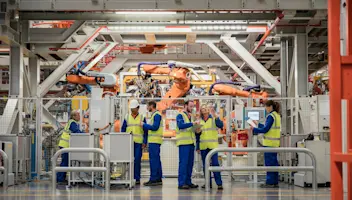Green Is the New Black: How ERP and EAM Aid in Sustainable Manufacturing
Green Is the New Black: How ERP and EAM Aid in Sustainable Manufacturing
Green Is the New Black: How ERP and EAM Aid in Sustainable Manufacturing
19 Apr 2018
Aptean Staff Writer
Whether we’re talking about recycled materials, genetically modified foods or conflict diamonds, it’s fair to say that more and more people are aware of – and care about – the origins of the materials they use. Cost is still important, but it isn’t necessarily the first criteria consumers consider when spending their hard-earned cash. They want to know their clothes weren’t produced in sweatshops using child labor or diamonds weren’t mined in war zones. They support manufacturers that strive to limit the impact their processes can have on the environment.
Many businesses wonder about the financial implications of instituting social and environmental policies. In the past, green initiatives were thought to be costly expenditures that decreased hard-earned profits. By viewing sustainability objectives through a wider lens, companies may find instead that these goals align with existing business strategies. Many manufacturers invest in enterprise solutions to increase operational efficiency, lower production costs and comply with government regulations. Solutions already in place to keep the company in the black can also support going green.
One of the top focuses for best-in-class companies is how to streamline and accelerate business processes, and improved efficiencies are a natural result of Enterprise Resource Planning (ERP). Numerous industry studies have reported that an integrated ERP system can lead to a 20 percent reduction in inventory costs. Improved inventory management then can decrease warehouse, handling and transportation costs, which adds another 5-10 percent to savings. These reductions benefit a company financially, but they also mean less fuel consumption and less waste going to landfills.
Similarly, an Enterprise Asset Management (EAM) solution can contribute to a company’s environmental efforts. EAM is critical for manufacturers who seek to maximize return on the considerable assets they own and mitigate risk due to failure of critical equipment. Many best-in-class organizations have started implementing predictive maintenance, which is designed to determine the operating conditions that indicate when maintenance is needed. With predictive maintenance, companies maintain assets based on data collected from expert observation and equipment monitoring, and can perform service as needed, before downtime occurs.
That approach not only ensures that important assets are up and running, but also can decrease energy costs. Regular wear and tear results in minor operating issues, and equipment often uses more energy to compensate for those problems. Predictive maintenance can halt those minor issues before they become major and return equipment to peak operating condition, thus saving energy and related expenditures.
Of course, sustainable manufacturing also offers companies a number of other benefits. Government oversight is unlikely to disappear, and by anticipating regulatory action related to the environment, organizations can potentially avoid costly catch-up scenarios. Manufacturers that “go green” may also be eligible for tax credits and rebates at the state or federal level. And reductions in warehouse, transportation, energy, equipment and other costs often improve the bottom line.
In the end, integrating a sustainability strategy into the company objectives sends a message of leadership internally and publicly, increasing customer loyalty and improving the company’s brand reputation. And with modern manufacturing technology, it is possible to be socially and environmentally conscious and operate an efficient and profitable business at the same time – one of those instances where everybody wins.
Related Content





Request a callback from a manufacturing ERP expert
Discover the benefits of software designed specifically for the discrete manufacturing industry.



